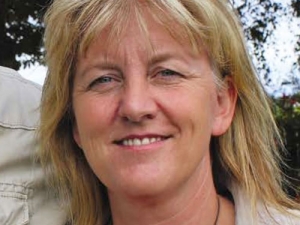Southland dairy farmer, Anita de Wolde discusses her role as a member of Rabobank's Southland client council and the Ag Pathways programme the client council has developed.
How long have you been involved with the client council and what is the role of the council?
I have been involved with the client council since it was first developed here in late 2012. The client council concept essentially stems from the core values of Rabobank in the Netherlands, centred on the empowerment of farming communities. Each council has about 10 clients and two bank representatives. There are now six client councils throughout New Zealand.
What are the key topics that regularly come up in discussion at client council meetings?
Part of the objective of the council is to be a sounding board for the bank, so we will discuss the bank's strategies and yearly results and give feedback on performance and bringing ideas to the table. The other part of the objective is to contribute to the industry and local communities. To achieve that we actively discuss pressing issues and needs within our rural industry and look for ways to pursue projects that could contribute to a solution and build better communities.
The Southland client council was the driving force behind the Ag Pathways programme that kicked off last year. What was the objective of this initiative and what was involved for those who took part?
In our discussions to identify farming issues, the one that most stood out for us was the challenge of retaining young people in our industry. We talked to rural professionals and looked at what programmes are available. Initially we were thinking of a mentoring programme, but we were keen to learn from our younger colleagues as well. As a result, a pilot knowledge sharing initiative was developed with the main aim of sharing knowledge and giving encouragement towards career development. For the programme we identified ten young dairy, sheep and beef farmers with long term ambitions in the farming industry and invited them to participate along with more experienced and established farmers. This group met once a month for six months at Rabobank Invercargill. These meetings included guest speakers who presented on topical industry subjects and engaged the participants and members in a discussion and networking activities. Sessions included workshops on succession business planning, work-life balance strategies, human resource management, a Myers Briggs personality profiling test, and environmental compliance.
What were the key lessons the younger farmers and the client council members took away from this programme?
As each session was thought provoking, there were many take home messages including the importance of goal setting and of being goal oriented, to the importance of a person's 'soft assets' such as their industry knowledge, relationship skills and work ethic. We also ran a session which allowed participants to identify their own, and others', personality type and this session gave participants some insight into how different personality types can be managed to help build stronger teams. For many, the highlight was hearing from three farming couples who shared their journey to farm ownership. These stories increased awareness that there are different opportunities for getting to farm ownership and that "hard work" was a common thread.
Looking towards the future, are there any further initiatives the client council is looking to run?
Absolutely. While we will continue running our Ag Pathways programme, we have already gone back to the drawing board with another look at current industry challenges. By talking to rural professionals as well as looking at some of the ideas established by other client councils we hope to identify and tackle more farming and rural community issues, so watch this space.
• Rabobank has six client councils located throughout NZ, made up of clients from across its network of 33 branches. To find out more about the client councils and/or other initiatives contact your local Rabobank branch on 0800 722 622.


















